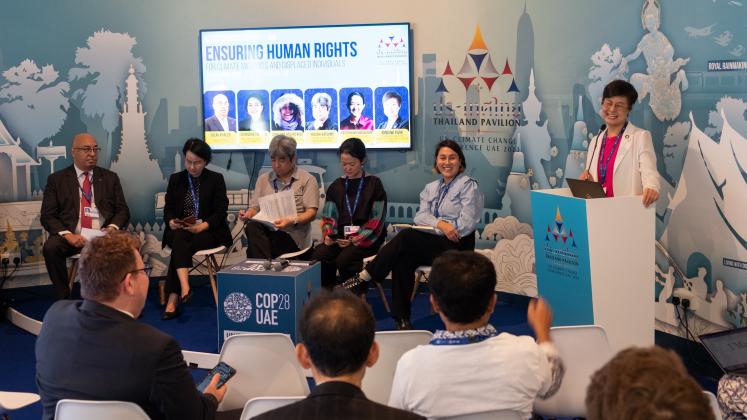A side event of the 2023 UN Climate Change Conference (COP28) in Dubai, held on 3 December, explored how to ensure human rights for climate migrants and displaced individuals. The session addressed shared challenges across diverse sectors that threaten the basic human rights of individuals facing displacement or at risk of displacement due to the impact of climate change. It was co-organized with the Government of Thailand, UNESCO and IOM.
The event shared key findings and policy recommendations from a global study on climate affected individuals and their right to education. As part of the study UNU-IAS and UNESCO conducted research on Bangladesh, India, Indonesia, Tuvalu and Viet Nam, which produced the book Asia-Pacific Regional Synthesis: Climate Change, Displacement and the Right to Education.
Discussion at the event highlighted the complex nature of human mobility and displacement in the context of climate change. Multiple displacement scenarios were considered, including planned relocation (by individuals or by government); forced displacement triggered by rapid- or sudden-onset events (e.g., landslides, storms and floods); seasonal/voluntary/cross-border migration driven by slow-onset change (e.g., sea level rise and land inundation) and trapped populations who may chose to remain in place.
Panellists explored key issues and concerns related to ensuring equitable access to fundamental services, such as education, health care and housing. It was emphasized that data is critical for predicting human mobility patterns and providing governments with tools to prepare more agile and resilient education, health care and housing systems in the context of climate change. International coordination and agreements are urgently needed to ensure the human rights of people on the move due to the impacts of climate change. Acknowledging the importance of community-based approaches in providing contextualized solutions, the discussion underlined the challenges involved in scaling up successful community actions.



